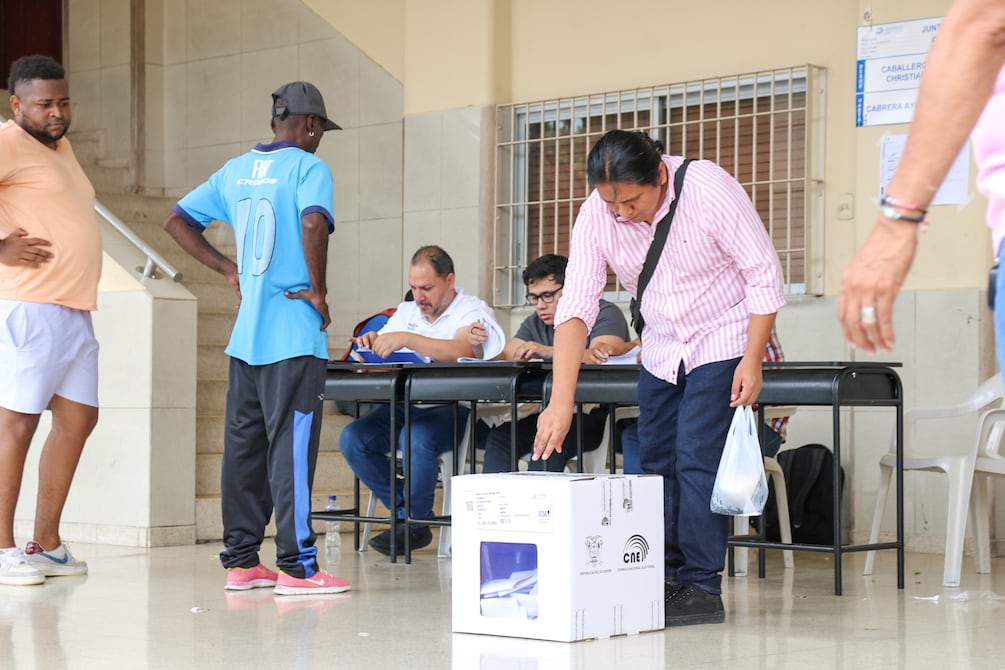Is "Ecuatoriano Pasivo" You? Here's What To Know!
Why does the label "Ecuatoriano Pasivo" resonate so strongly? Because it touches upon a sensitive, often misunderstood aspect of Ecuadorian identity, hinting at a perceived passivity that deserves careful examination. The very term, seemingly simple, opens a complex dialogue about national character, cultural influences, and the socio-political landscape of a nation deeply shaped by its history.
The phrase, untranslated, carries a weight of interpretation. "Ecuatoriano" denotes nationality, a fundamental identifier. "Pasivo," however, is less straightforward. It suggests a lack of assertiveness, a tendency towards inaction, a possible reluctance to engage in confrontation or challenge the status quo. It's a descriptor that, depending on the context and the speaker, can be a criticism, an observation, or a self-deprecating acknowledgement. But how does this label, "Ecuatoriano Pasivo," manifest in real life, in the actions and attitudes of the Ecuadorian people? Does it accurately reflect the vibrant diversity and resilience of a nation that has weathered countless challenges, from colonial rule to economic crises?
| Biodata | Details |
|---|---|
| Name: | [Insert Hypothetical Name Here - e.g., "Sofia Elena Rodriguez"] |
| Date of Birth: | [Insert Hypothetical Date - e.g., "March 15, 1988"] |
| Place of Birth: | [Insert Hypothetical Location - e.g., "Guayaquil, Ecuador"] |
| Nationality: | Ecuadorian |
| Marital Status: | [Insert Hypothetical Status - e.g., "Married"] |
| Education: | [Insert Hypothetical Education - e.g., "Bachelor of Arts in Political Science, Universidad San Francisco de Quito"] |
| Career: | [Insert Hypothetical Career Information - e.g., "Human Rights Advocate, Founder of a Non-Profit Organization."] |
| Professional Experience: | [Insert Hypothetical Professional History - e.g., "Worked with Amnesty International, led campaigns on indigenous rights, advised governmental agencies."] |
| Skills: | [Insert Hypothetical Skills - e.g., "Fluent in Spanish and English, public speaking, conflict resolution, grant writing."] |
| Awards/Recognition: | [Insert Hypothetical Awards - e.g., "Award for Human Rights Advocacy from the Ecuadorian Government."] |
| Notable Achievements: | [Insert Hypothetical Achievements - e.g., "Successfully lobbied for legislation protecting environmental rights, established a community center providing educational resources."] |
| Link to Authentic Website (Example): | United Nations - Ecuador |
To delve into the complexities of "Ecuatoriano Pasivo," we must first acknowledge the historical context. Ecuador, like many Latin American nations, has experienced periods of political instability, economic hardship, and social inequality. The legacy of colonialism, the influence of authoritarian regimes, and the persistent presence of corruption have all contributed to a societal environment where citizens may feel disempowered, hesitant to challenge authority, or resigned to the status quo. This is not to say that passivity is the defining characteristic of all Ecuadorians, but rather that historical circumstances have, at times, fostered a culture where avoiding conflict and maintaining a sense of order might be prioritized over active dissent or radical change.
Consider the political landscape. Ecuador has seen a succession of presidents, each with their own agendas and levels of popularity. The rapid turnover of leaders, coupled with instances of political upheaval, can lead to a sense of disillusionment and a belief that individual efforts to effect change are futile. Furthermore, the prevalence of corruption, which undermines public trust and erodes faith in institutions, may encourage citizens to adopt a more cautious approach to civic engagement. Why risk becoming a target when speaking out could potentially expose them to negative consequences? This is a calculation, a pragmatic response to a complex reality, that might be misinterpreted as passivity.
The economic factors are equally significant. Ecuador's economy has historically been heavily reliant on natural resources, such as oil and bananas, making it vulnerable to global market fluctuations. Economic downturns, which have occurred frequently, can lead to widespread unemployment, poverty, and social unrest. Faced with these challenges, individuals may prioritize survival over activism, focusing on providing for their families and navigating the difficulties of daily life. This focus on economic stability can sometimes be perceived as a lack of engagement with broader social or political issues, contributing to the perception of passivity.
Cultural influences also play a crucial role. Ecuadorian culture is diverse, shaped by Indigenous traditions, Spanish colonialism, and the influences of various immigrant groups. Within this context, values such as respect for authority, family loyalty, and a preference for consensus-building are often highly valued. These cultural traits, while positive in many respects, can sometimes contribute to a reluctance to engage in direct confrontation or to challenge established norms. The emphasis on maintaining harmony and avoiding conflict can, in certain situations, be misconstrued as passivity.
However, it is essential to avoid generalizations. The label "Ecuatoriano Pasivo" does not capture the full spectrum of Ecuadorian experience. The country has a rich history of social activism, with movements fighting for indigenous rights, environmental protection, and social justice. These movements, often led by courageous individuals and organizations, demonstrate a commitment to change and a willingness to challenge the established order. To ignore these voices, to overlook the resilience and determination of those who are actively working to improve their communities and their nation, would be a profound disservice.
Furthermore, the perception of passivity may be influenced by external factors. The media, both domestic and international, can play a significant role in shaping public opinion. If the focus is primarily on negative stereotypes, on portrayals of a passive populace, it can reinforce those perceptions and contribute to a self-fulfilling prophecy. It is crucial to examine the narratives surrounding Ecuador and to ensure that they accurately reflect the complexity and diversity of the country and its people. A balanced perspective, which acknowledges both the challenges and the strengths of Ecuadorian society, is essential for fostering a more nuanced understanding.
Consider the case of the 2019 protests against austerity measures. While some might characterize the initial response as hesitant, the eventual outpouring of public anger and the widespread demonstrations demonstrated a clear rejection of the government's policies. The protests, which involved a broad cross-section of Ecuadorian society, including indigenous communities, students, and labor unions, showed a willingness to confront authority and demand change. This active resistance directly contradicts the stereotype of a passive population.
Another example can be found in the environmental movement. Ecuador has a strong environmental consciousness, and many citizens are actively involved in protecting the Amazon rainforest and other natural resources. The fight against oil extraction in the Yasun National Park, for instance, brought together indigenous communities, environmental groups, and international supporters in a powerful demonstration of solidarity. This commitment to environmental protection, often at great personal risk, is hardly indicative of passivity.
The term "Ecuatoriano Pasivo," therefore, serves as a starting point for a more complex conversation. It is a reminder to examine the nuances of Ecuadorian identity, to consider the historical, political, economic, and cultural factors that shape the nation's character. It is an invitation to look beyond simplistic generalizations and to recognize the diverse experiences and perspectives of the Ecuadorian people. It is a call to appreciate the courage, resilience, and activism that have defined Ecuador's past and will continue to shape its future.
Moving forward, it is important to encourage critical thinking and open dialogue about the issues that affect Ecuador. This includes fostering a culture of civic engagement, promoting education and awareness, and supporting the work of civil society organizations. It also means challenging negative stereotypes and promoting a more balanced and accurate portrayal of the country and its people. By actively engaging with these issues, Ecuadorians can continue to shape their own identity and build a more just and equitable society.
The conversation around "Ecuatoriano Pasivo" is not about assigning blame or making sweeping judgments. It is about understanding the complexities of a nation, its history, and its people. It is a reminder that labels are often insufficient, that human experience is multifaceted, and that the true character of a nation can only be revealed through a careful and nuanced examination of its past, its present, and its aspirations for the future.
The ongoing evolution of Ecuadorian society provides ample evidence against any simple dismissal of the people as "passive." From grassroots movements to the vibrant artistic expression that defines the nation, Ecuador pulsates with a resilient energy. This vitality underscores the need to move beyond simplistic labels and to explore the complex interplay of factors that contribute to Ecuadorian identity. The true narrative of Ecuador is one of continuous negotiation between tradition and progress, hardship and hope, passivity and passionate engagement.
Perhaps, instead of framing the question as a simple assertion of passivity, the focus should shift toward understanding the conditions that may sometimes create the appearance of passivity. Investigating the root causes political corruption, economic instability, cultural influences is the necessary first step. Only then can we move toward creating a society where every citizen feels empowered to participate fully in the shaping of their nation.
The future of Ecuador, much like its past, will be a story of resilience, adaptation, and the ongoing struggle for a better world. It is a story that demands our attention, our respect, and our commitment to understanding. The label "Ecuatoriano Pasivo," therefore, serves not as a final verdict, but as a prompt for deeper engagement, a catalyst for critical thinking, and a reminder that the true nature of a nation is far more complex, and far more interesting, than any simple generalization.



Detail Author:
- Name : Mr. Emiliano Jacobs PhD
- Email : hilario.kovacek@hotmail.com
- Birthdate : 1978-03-24
- Address : 6111 Bernard Passage East Ozellaburgh, MO 04770
- Phone : +1-657-694-4974
- Company : Schowalter Inc
- Job : Information Systems Manager
- Bio : Laboriosam qui aut voluptatem qui eos vitae nam. Fuga est modi laudantium quia laudantium nostrum. Ut quibusdam facilis et nisi. Perferendis odio amet velit accusamus dolore consequatur.